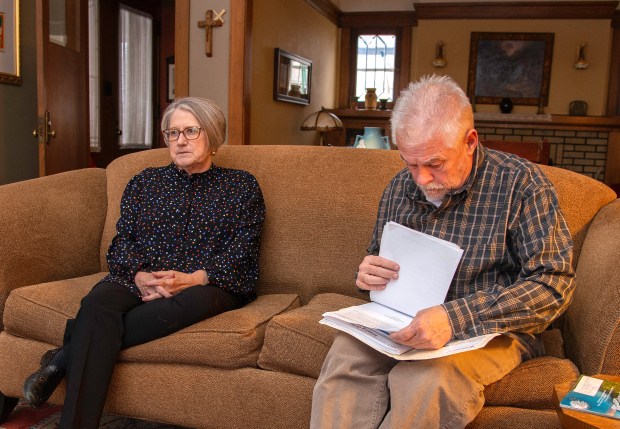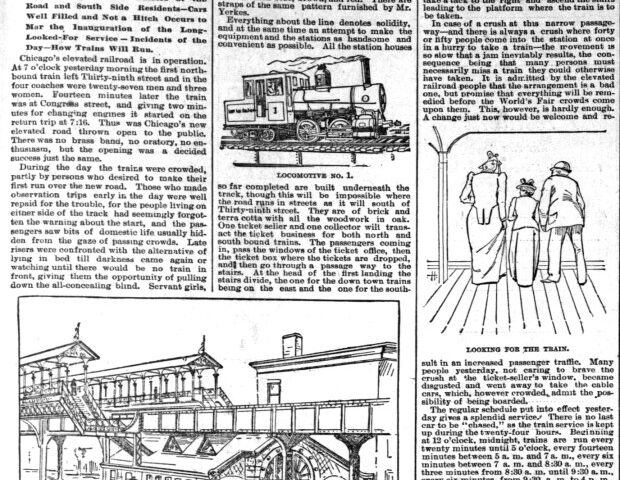Pat Ingram remembers leaving a Valparaiso Noon Kiwanis meeting held at First Christian Church a little more than a year ago but after that, things got fuzzy.
The Valparaiso woman, 67, has vague memories of someone tapping on the window of her car, which she pulled into a snow bank in the parking lot of a pediatrician’s office a few blocks west of the church. She recalls the cold of metal handcuffs around her wrists and seeing her husband Steve and son Aaron when she was placed in an ambulance.
And Ingram remembers waking up hours later, early the morning of Jan. 18, 2024, at Community Hospital in Munster and subsequently finding out that she had had a stroke and undergone emergency brain surgery.
For the most part, Ingram has recovered from the stroke and has been able to piece together what happened on Jan. 17 of last year. What she and her husband Steve are still unable to understand is why Valparaiso Police officers who responded to the scene spent so much time focusing on whether she was intoxicated without evaluating her for a stroke.
“We would have loved to meet with the city two weeks after this happened,” Steve Ingram said, adding they would have liked an apology and assurance from officials that police were properly trained to recognize the symptoms of a stroke.
Per an email from Patrick Lyp, Valparaiso’s city attorney, all of the city’s police officers receive “general first aid training and basic life support as part of their initial recruitment and basic training instruction,” as well as training on CPR, the use of AEDs and the administration of the opioid antidote naloxone, and other measures.
“Many officers decide to extend their basic medical response knowledge, to include the certifications of Emergency Medical Responder (EMR) or Emergency Medical Technician (EMT). The Valparaiso Police Department currently has 16 EMR-certified officers and three EMT-certified officers,” Lyp said in the email. The training, which ranges from 80 to 160 hours depending on the level of certification, addresses patients suffering from strokes.
“Within the past year, the Valparaiso Police Department has completed refresher training in medical response, to include CPR, AED, and patient assessment,” Lyp said in the email. “Additional officers have been added to the Emergency Medical Response team, as certification in this area is extremely important to the well-being of our community. VPD continues to offer training courses biennially to increase the number of officers who have this expertise.”
Police officers in Indiana are required to have training in Basic Life Support and Basic First Aid as part of their initial training, Lyp said, adding that training is set forth by department and may include specialty training and/or refresher training in those basic skills.
“VPD was the first law enforcement agency in Porter County to incorporate an emergency medical specialty, starting the program in 2020,” Lyp said.
Because Pat Ingram filed a tort claim notice, indicating the possible filing of a lawsuit, Lyp said there were limitations on how the city could respond to media questions.
Attorney Jessica Smithey filed the tort claim notice on June 4.
“Patricia’s No. 1 goal has always been to have a conversation about what occurred and what she went through,” Smithey said, adding she filed a notice of tort claim act “to preserve Patricia’s rights moving forward.”
The Ingrams note that Pat’s car came to rest in a physician’s parking lot and the Valparaiso Medical Center, a facility that’s part of the Northwest Health system, was directly across the street.
“This would have turned out differently if a firefighter had pulled up instead of a cop,” Steve Ingram said.
The Ingrams have lived in Valparaiso since 1987 and have long been active in the community.
“I dislike doing this because I love this city,” Pat Ingram said.
Ingram’s ordeal was captured on police body and squad car cameras; the couple paid the requisite fee of $150 per video, for a total of $750, per the invoice, to the police department to get the footage a week after she had the stroke.
One of those videos is about an hour long and begins as an officer is on his way to the parking lot of Associated Pediatricians at 1111 E. Glendale Boulevard for a call of “a possibly intoxicated subject,” according to the police report, and ends when she is placed in an ambulance headed to Northwest Health-Porter. She was later transported by medical helicopter to Munster.
Throughout much of the video, Pat Ingram speaks so softly that when she speaks at all, she is difficult to hear or understand. She appears confused by instructions she receives from police to lower her car radio and step out of her car, and is unsteady on her feet.
When police transport her to the sallyport at the police station and take her out of the squad car to again try to assess what’s going on, an officer hands her a pad of paper and a pen to write down where she had been before she crashed into the snowbank on but Ingram is unable to hold the objects in her right hand. Sometimes, she sighs and closes her eyes instead of responding to officers.
They ask her numerous times if she’s had a drink; she answers yes then later says no. They ask if she’s on any medication and she says no, unable to communicate that, according to her and her husband, she’s on an assortment of medications for various health issues. Police ask if Pat Ingram is diabetic; again, she is not able to articulate what’s going on.
Police appear genuinely puzzled by her condition. Once they make contact with Steve Ingram and call for an ambulance while they’re in the police department’s sallyport, first responders deduce she’s having a stroke.

Pat Ingram told her husband she was getting groceries ahead of a predicted snowstorm after the Kiwanis meeting, which wrapped up around 1:15 p.m. or so. When Steve Ingram couldn’t reach her on her cellphone after repeated attempts, he called their son.
At 4:48 p.m., according to the police report, Valparaiso Police were called to the Associated Pediatricians parking lot for a call of a suspicious person with a possible medical issue. Per that report, Pat Ingram was never charged with a crime, nor was she formally taken into custody.
Steve Ingram contacted police at 5:09 p.m. that afternoon, according to a timeline put together by the Ingrams. About 24 minutes later, police told Steve Ingram they were taking Pat to the police station. Steve Ingram’s conversation with police is captured on the body camera video. He told police his wife had previously had a stroke and from her symptoms, it sounded as though she was having another one. Around 5:41 p.m., police told Steve Ingram they were calling an ambulance; Steve and Aaron Ingram arrived at the station a few minutes later, at the same time as the ambulance.
When Pat Ingram was in the hospital in Munster, her then-fifth grade granddaughter, who had first aid training in Girl Scouts, asked Pat why police didn’t ask her to stick her tongue out or smile, two actions, or inability to do so, that would have revealed she was having a stroke.
According to the American Stroke Association website, people can use FAST to determine whether someone is having a stroke. The letters stand for face drooping; arm weakness; speech difficulty; and time to call 911. Other symptoms include numbness; confusion; trouble seeing; trouble walking; and severe headache.
Pat Ingram said her speech is still somewhat impacted by the stroke, particularly when she’s recounting her ordeal.
“I’m getting over it. I’m working on it,” she said. “But it’s just like, I don’t want anybody else to go through this, but your first responders should be your first advocate.”
alavalley@chicagotribune.com





